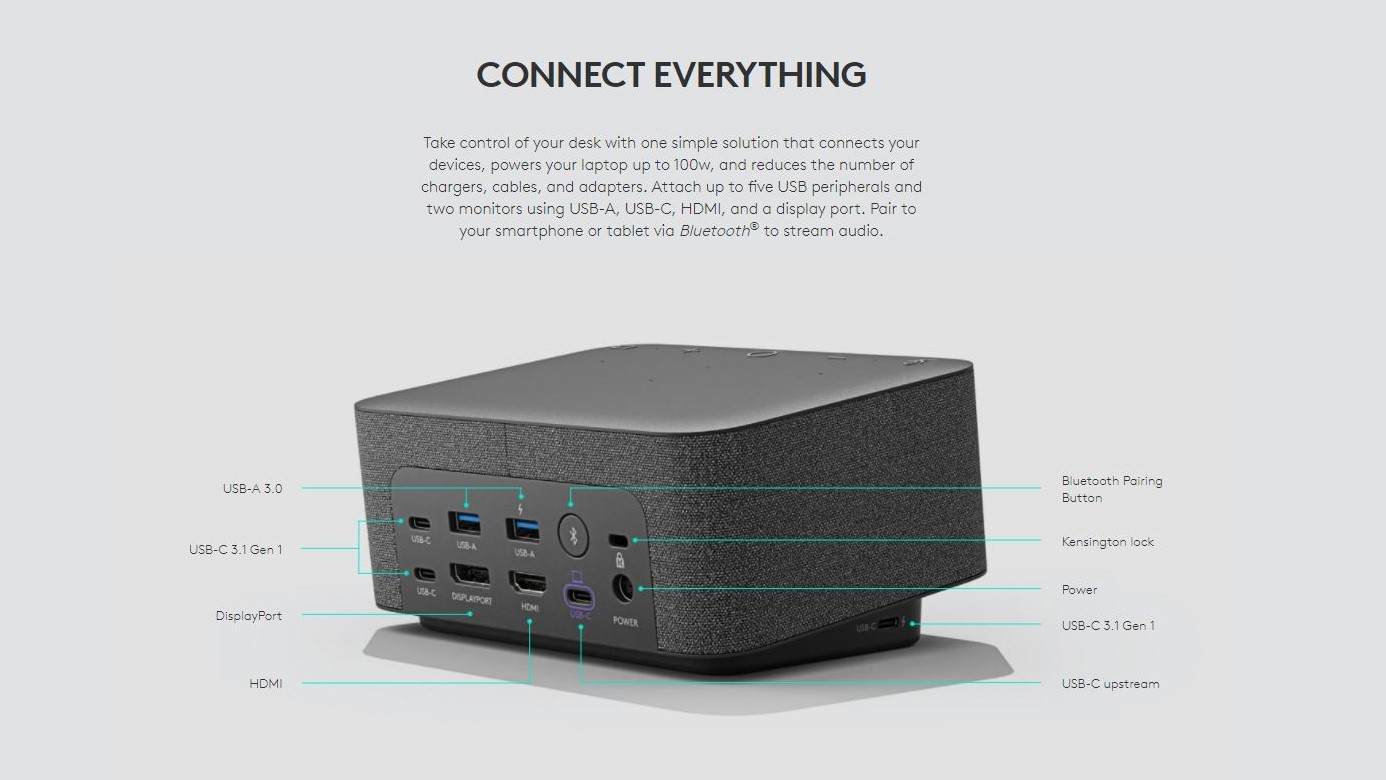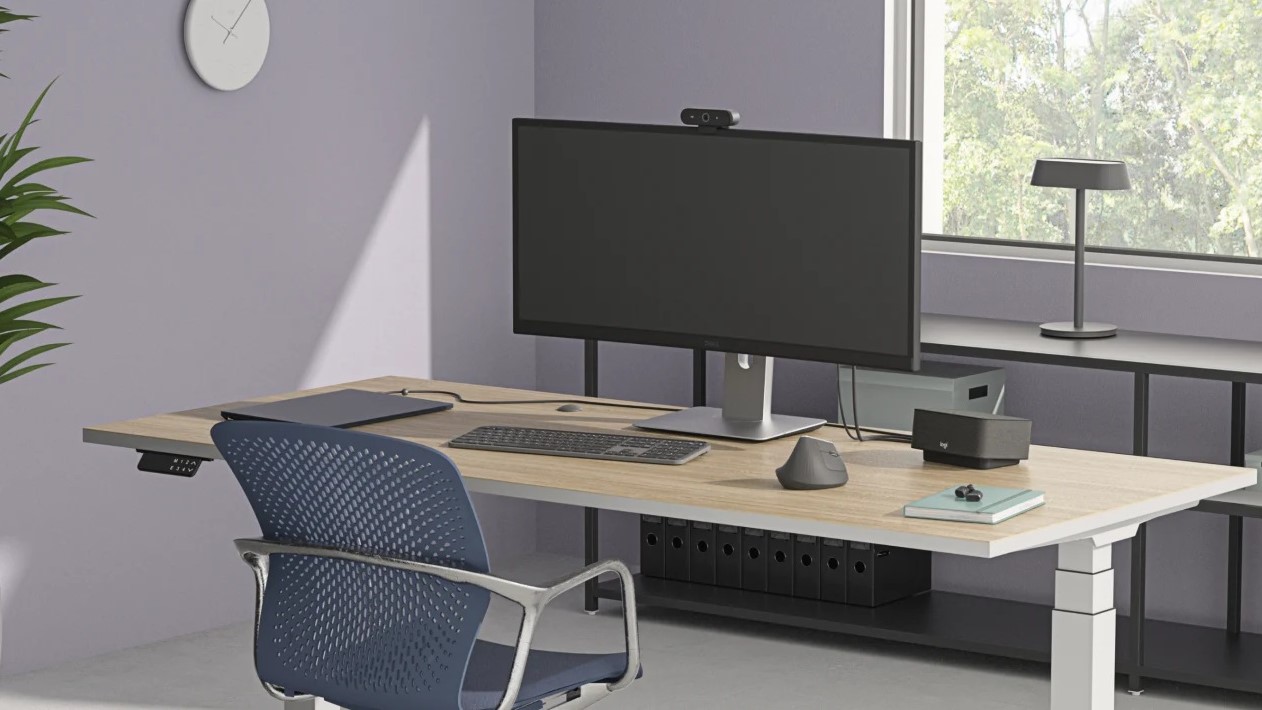Logitech unveiled the Logi Dock, a device that serves as a multi-port dock, speaker, and microphone array. In short, it’s an all-in-one computer support terminal that declutters your desk, pitched as the ultimate WFH solution to maximize small spaces. It’s also a harbinger of a work future without offices, where employees are responsible for building their own workspace.
That’s not knocking the Logi Dock itself: with a combined six USB-A and USB-C ports as well as two display (HDMI and DisplayPort) and one power port, the device is an apt replacement for current docks and dongles. With a speaker and six microphones, it can also serve as a speakerphone that connects you to video calls at the touch of a button.
All it lacks is a webcam – which is something current WFH warriors probably already have. It seems Logitech took time surveying its customers to figure out their workspace pain points, and the Logi Dock aims to eliminate the biggest irritants for those now working in spaces that weren’t intended to be workspaces.

"When the pandemic hit, we spent an incredible amount of time with our end users to understand their needs and pain points in a work-from-home world. The result was Logi Dock," Scott Wharton, general manager and vice president of Logitech Video Collaboration said in a press release. "This is a disruptive, simple, and modern docking solution along with key collaboration features like one-touch-to-join and better mute control. And not insignificantly, it turns our cluttered ‘rats nest’ of cabling into the elegant workspace we all aspire to have."
In other words, it’s the first big product to come from reimagining what consumers need in a pandemic world – one where we’re all making do with less space than we would in an office. An all-in-one device is probably attractive for folks pressed into using their own equipment to replace all the things they had in their workplace – and if you want a demonstration, check Logitech’s listing for the Logi Dock, which has a photo slider to show how much cleaner a desk looks when its new product replaces all the docks, power bricks, speakers, speaker phones, and headphones typical of a workspace.
Practically, it’s a cool solution. But in focus testing the product for a WFH crowd, Logitech is inadvertently affirming that this situation is here to stay.

Logi Dock: a solution for consumers, not companies
It’s possible that companies see the Logi Dock as useful for their own desk setups, but simpler docks are cheaper and most workspaces are communal, meaning the speaker functionality would be less desirable than asking employees to use headphones so as not to disturb neighbors.
No, the Logi Dock is probably best for consumers – and not just those at the same desk everyday, either. Even at a hefty starting price of $399 / £399 (around AU$540), the product is a decent value for workers who may be shifting between temporary office spaces or work-friendly public spaces like libraries and coffee shops.
In ‘hot desk’ offices where employees grab whatever desk is available or WeWork-like rentable spaces, the Logi Dock helps workers quickly link up to whatever display and peripheral setup is available, with speakerphone functionality and space for a laptop charger. Even in libraries and coffee shops where workers may not be able to take a call, they can still use the dock functionality to hook up to accessories – which is especially necessary for owners of slim laptops like the MacBook Air that come with two ports total.
The Logi Dock is still a neat solution for those use cases – it’s just worrisome that Logitech sees the nomadic laptop user as a growing segment of the workforce enough to develop solutions they’ll probably have to buy themselves. Logitech has read the tea leaves, and they say that companies may furnish less of an employee’s setup in the future – leaving consumers footing more of the bill to get their work done.
While more flexible work arrangements is a good thing, especially to support consumers with their particular needs and circumstances, it’s clear that more products are coming out to supply atypical work setups – especially at home. Whether employers help pay for those setups is completely up to them.
- How to work from home: everything you need for remote working
from TechRadar - All the latest technology news https://ift.tt/38PzumO

No comments:
Post a Comment